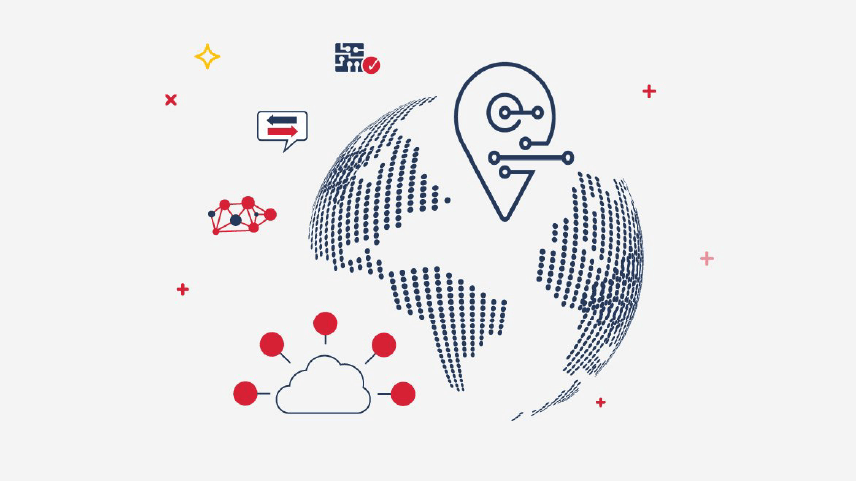Digital transformation is an essential part of today's business operations. Whether looking under the hood of a new startup or working with long-established processes, digital transformation offers the ability to reach for operational excellence and improve efficiencies at every level of the organizational chart. Consumers in the Middle East are already on board with digital transformation, particularly in countries like Bahrain, Qatar, and the United Arab Emirates.
In these areas, smartphone penetration has exceeded 100%, and social media is not far behind at 70%. So, why add localization to existing digital transformation journeys? The answer is simple - to grow a business's reach.
Localization allows products and services to help more people across national and regional boundaries. But, expanding to new markets means developing the systems and communication modules that are relevant in these markets. That's where localization can shine. It is the process of adapting existing products and services to be more appealing to specific markets, and that usually starts with legal wrangles.
Adapting to different rules and regulations
Every country has different rules and regulations surrounding businesses. Some may require transparent supply chains, while others may demand a variety of permits. Before crossing international borders, it is important to understand the local legal issues. Tackling compliance should always be the first step in localizing digital transformation.
Overcoming the language barrier
Once a company is legally able to do business, the second step is learning the language. While hiring locally allows companies to communicate directly with new markets, digital products need the same local flavor.
That means translating all current content for easy reading. It also might mean translating any digital products to allow local employees access to important business functions and so consumers can use digital products or services. Chatbots are particularly effective when they use conversational language. By localizing automated systems, businesses can reach a much bigger audience with a limited capital investment.
Demonstrating cultural awareness
Cultural awareness can be a major stumbling block when expanding internationally. Cultural value can impact business relationships.
When doing business in the Middle East, concepts like fatalism, the clan system, delegation, honor, hierarchy and status, and the values of Islam all play an important role in business interactions. A mistimed joke, scheduling meetings during religious observances, or using the wrong color scheme might all cause problems. Even a simple translation can go terribly wrong without localization, as KFC learned when entering the Chinese market. A translation of their "finger-lickin'" slogan turned into one that promoted cannibalism - not what they were going for.
Understanding local business practices
While learning the rules and regulations takes care of some of the barriers to doing business, business practices may be very different based on the region. For example, Groupon demonstrated the value of using local talent to network with businesses when they failed to do so for their Chinese expansion. The result was a resounding failure as smaller, local services sprang up and undercut the discount giant.
In many areas of the Middle East, the weekend may run from Friday through Saturday.
Just that one day shift in scheduling can make it difficult to finalize contracts. Many Middle Eastern countries celebrate both Christian and Islamic holidays, so sensitive partners track both calendars. Also, expect to conclude negotiations face-to-face. While email and phone may be a part of the process, there is no substitute for an in-person meeting in the MEA.
Digital transformation streamlines localization rollout
Digital transformation allows businesses to rollout organization-wide changes in almost real time. When expanding to a new geographic region, companies can update the local calendar within minutes, or roll out translated customer service bots. Since rollout for changes is so quick, organizations gain more time to spend on the localization process. That means a business can take the time to make sure that new calendar reflects local holidays and the customer service bots use idiomatic language that is consistent with the geographic region.
Localization is what makes communication possible for a growing company, and communication is the foundation of all business transactions.
CEQUENS Edge: MEA's Communication Partner
Founded in 2011, CEQUENS has set out to empower businesses to expand their communication reach by providing a reliable, always-on communication platform . With strong local presence in Egypt, Saudi Arabia, Jordan, Bahrain, Kuwait, and soon to expand further in other countries, CEQUENS understands the local and regional regulations and dynamics, helping businesses avoid the pitfalls of both.
Read Now: Everything You Wanted to Know About UCaaS and CPaaS But Were Too Afraid to Ask
.png)

